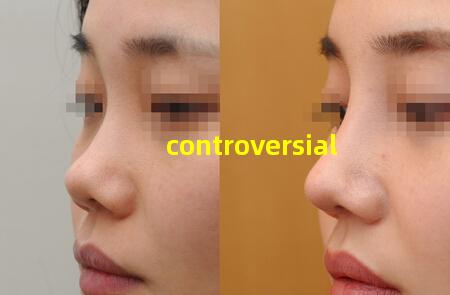








Should Plastic Surgery Be Supported?
Plastic surgery, whether it is for therapeutic or aesthetic purposes, has become a controversial topic in society. Some argue that it is a personal choice and should be supported, while others believe it promotes unrealistic beauty standards and should be discouraged. As with any debate, there are valid points on both sides.
Those in favor of supporting plastic surgery argue that it can significantly improve the quality of life for individuals with physical deformities or injuries. Procedures such as reconstructive surgery provide hope and allow people to regain confidence and function. Moreover, cosmetic surgery can boost self-esteem and help individuals overcome body image issues, leading to a more positive outlook on life.
Conversely, opponents of plastic surgery emphasize the potential dangers and ethical concerns associated with these procedures. They argue that endorsing it only perpetuates superficial beauty standards and promotes the notion that appearance is more important than inner qualities. Furthermore, there are always risks involved with any surgical procedure, and these should not be taken lightly.
While both sides make valid arguments, it is important to consider the underlying motivations for undergoing plastic surgery. It is essential to differentiate between purely aesthetic alterations and those aimed at improving physical wellbeing or addressing medical conditions. Rather than outright supporting or opposing plastic surgery, a balanced approach that considers individual circumstances and the intended outcome should be adopted.
In conclusion, the debate on whether to support plastic surgery is multifaceted. While it is crucial to acknowledge the risks and potential negative impacts associated with it, it is equally important to recognize the positive effects it can have on individuals seeking to improve their physical and mental well-being. Ultimately, responsible decision-making that prioritizes health, authenticity, and individual choice should guide our perspective on plastic surgery.

Title: Should Cosmetic Surgery Be Banned?
Introduction:
Cosmetic surgery, also known as plastic surgery, has become increasingly popular in today's society. Many individuals, in pursuit of an idealized appearance, resort to surgical procedures to enhance their physical features. While the desire to look one's best is understandable, there are valid arguments for banning cosmetic surgery.
Argument 1: Health Risks
Cosmetic surgery is not without risks. Any surgical procedure carries inherent dangers, such as infection, blood clots, and adverse reactions to anesthesia. Additionally, improper surgical techniques or the use of unqualified practitioners could lead to serious complications or even death. Banning cosmetic surgery would protect individuals from these potential health hazards.
Argument 2: Psychological Impacts
Undergoing cosmetic surgery can have long-lasting psychological effects. Some individuals may develop body dysmorphic disorder, wherein they become obsessively preoccupied with perceived flaws in their appearance. Others may experience disappointment or regret if the expected results are not achieved. Banning cosmetic surgery would prevent these negative psychological consequences.
Argument 3: Unrealistic Beauty Standards
Cosmetic surgery perpetuates unrealistic beauty standards. Media and society often promote an unattainable, homogenized concept of beauty, leading individuals to feel inadequate or undesirable. By banning cosmetic surgery, we could encourage acceptance of diverse appearances and promote self-acceptance based on inner qualities rather than physical attributes.
Conclusion:
Although cosmetic surgery may appear to provide a quick fix for individuals seeking physical enhancement, there are compelling reasons to consider banning it. The health risks, psychological impacts, and perpetuation of unrealistic beauty standards all contribute to an argument against the practice. Rather than resorting to surgical alterations, society should foster a culture of acceptance and promote self-confidence based on individuality and inner beauty.

Debate on Plastic Surgery
Plastic surgery, as a controversial medical procedure, has been a topic of debate in recent years. Supporters argue that it can improve physical appearance and boost self-esteem, while opponents claim that it promotes unrealistic beauty standards and can have negative psychological implications.
On one hand, proponents argue that plastic surgery can enhance an individual's self-confidence and improve their quality of life. For people with congenital deformities or physical abnormalities, such surgeries can provide a much-needed sense of normalcy. Moreover, in modern society where physical appearance is often emphasized, individuals may choose plastic surgery to conform to societal beauty standards or to compete in certain professions.
On the other hand, opponents argue that the pursuit of physical perfection through plastic surgery can be harmful. Critics highlight that it often leads to a cycle of dissatisfaction, as individuals become addicted to altering their appearance. Furthermore, it can reinforce harmful stereotypes and place undue pressure on young people to conform to society's narrow definition of beauty.
In conclusion, the debate on plastic surgery is complex and multifaceted. While it can provide benefits to individuals who seek to improve their physical appearance, it is crucial to consider the potential consequences and societal implications. Ultimately, the decision to undergo plastic surgery should be carefully weighed, taking into account both physical and psychological well-being.

Title: The Controversy Surrounding Cosmetic Surgery
Introduction:
Cosmetic surgery is a topic that sparks strong debate and divided opinions. While many individuals support the practice of altering one's physical appearance to achieve their desired look, there is a growing movement that opposes such procedures. This article aims to explore the reasons behind the opposition to cosmetic surgery and shed light on the deeper implications it holds for society.
Body:
Cosmetic surgery is often criticized for promoting unrealistic beauty standards by perpetuating the belief that only a certain physical appearance is desirable. The pressure to conform to these ideals can lead to low self-esteem and body image issues among those who do not fit the prescribed standards. Moreover, the fixation on physical appearance can overshadow other important aspects of a person's character and abilities.
Critics argue that the popularity of cosmetic surgery jeopardizes societal values such as self-acceptance and authenticity. Instead of embracing our uniqueness, individuals are encouraged to alter themselves to fit societal norms. This not only perpetuates a superficial approach to life but also undermines the value of natural beauty and diversity.
Furthermore, the risks associated with cosmetic surgery cannot be ignored. Any surgical procedure carries potential complications, from infections to scarring, and even life-threatening situations. Additionally, the financial burden of cosmetic surgery can be overwhelming, as many procedures are costly and not covered by insurance. This raises concerns about the accessibility of these procedures, as they may only be available to those with sufficient financial resources.
Conclusion:
In conclusion, the opposition to cosmetic surgery stems from concerns about society's emphasis on physical appearance, the potential risks involved, and the potential impact on self-acceptance and authenticity. While personal choices should be respected, it is essential to consider the larger implications of supporting a practice that prioritizes altering physical appearance over accepting oneself as they are. Fostering a culture that values inner qualities and diversity can lead to a more inclusive and accepting society.
